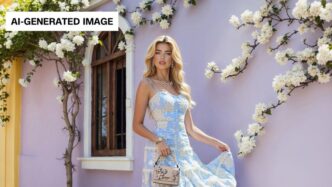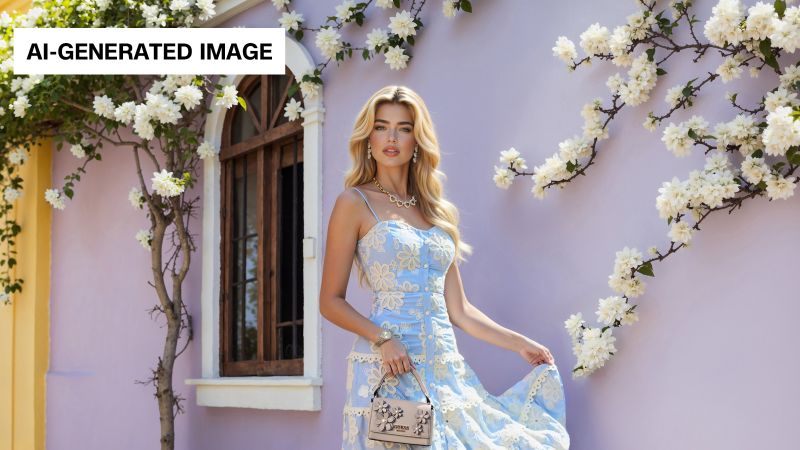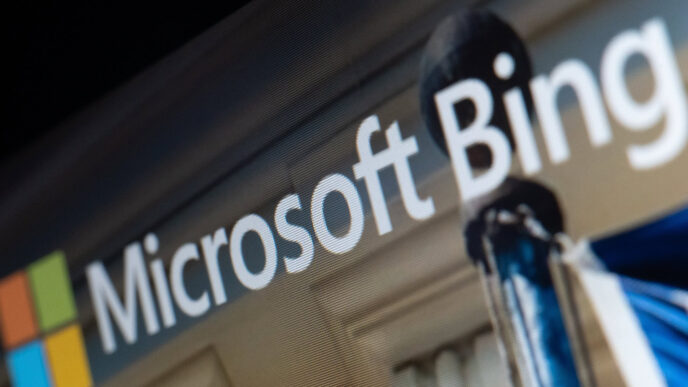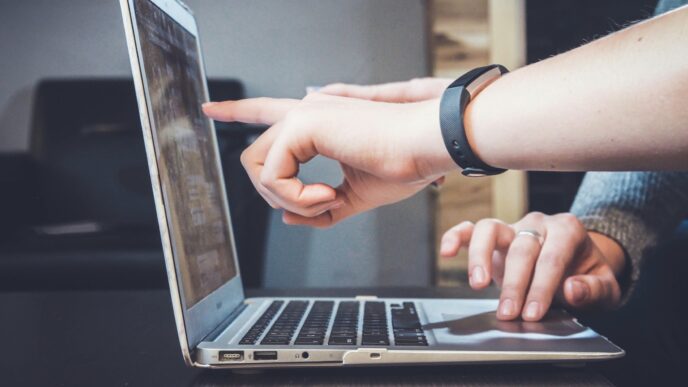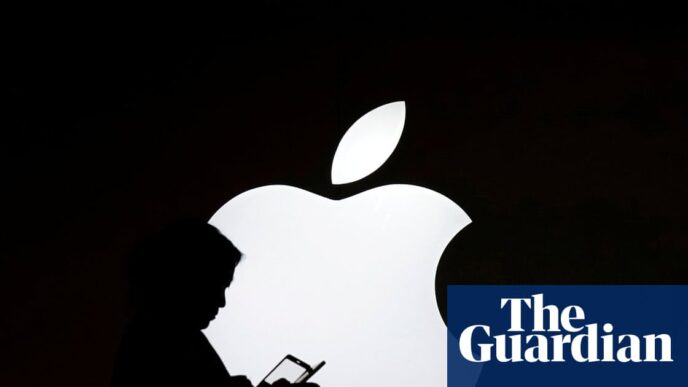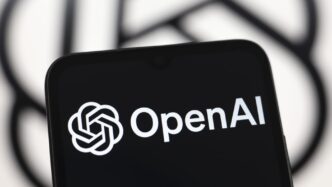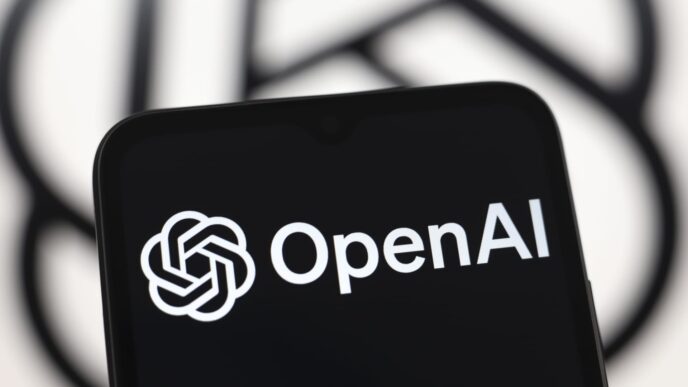Guess sparks backlash over AI-generated models in Vogue ads
Guess rolled out a new campaign featuring AI-generated models in the August 2025 issue of American Vogue. The images include a digitally created blonde and brunette model wearing Guess clothing, designed by London-based AI marketing agency Seraphinne Vallora.
The AI disclaimer was small, but TikTok user @lala4an’s viral video exposing the AI models sparked over 2.7 million views and heated debate online. Critics argue the trend pressures real people further, worsening unrealistic beauty standards.
“It’s insane because it’s not like we’re short on people looking for modeling gigs or anything,” one TikTok comment with 67,700+ likes said.
“So first normal women are comparing themselves to edited models… Now we have to compare ourselves to women that don’t even exist???”
Some called for boycotts of Guess and Vogue. Vogue confirmed it has never featured AI models in editorial shoots, though digitally created models have appeared in its international editions like Vogue Singapore.
Valentina Gonzalez and Andreea Petrescu, co-founders of Seraphinne Vallora, defended the work. They said AI models are created with input from real models’ photoshoots and selected by Guess co-founder Paul Marciano. Petrescu added clients choose AI for efficiency and budget reasons.
“To create an AI model, it takes time, so we want to make sure that people engage with it.”
Valentina Gonzalez, co-founder of Seraphinne Vallora
Other brands have used AI models too. Mango launched an AI campaign for teen clothes in 2024, while Levi’s began testing AI models in 2023 to represent diverse bodies and skin tones. Both faced criticism for potentially exploiting diversity without long-term investment.
Mango’s CEO Toni Ruiz told Bloomberg AI cuts content creation time, while Levi’s stressed it won’t scale back real photoshoots.
Seraphinne Vallora’s AI models mostly feature conventionally attractive white women, reflecting client demands rather than technical limits.
Sara Ziff, founder of Model Alliance, warned brands must set ethical guardrails as AI threatens model livelihoods.
“We need to ask who’s getting paid, who’s getting seen and who gets erased.”
Sara Ziff, founder and executive director of The Model Alliance
Digital avatars like Lil Miquela and Shudu blur lines between AI and real influencers, already working with luxury brands. H&M created AI “twins” of 30 real models to extend their reach, with models retaining rights to their digital doubles.
Fashion insiders say AI boosts output but can’t replace the authentic connection real-life models provide.
“There is no brand that we work with that is scaling down on traditional photography.”
Michael Musandu, CEO of Lalaland.ai, a digital model studio acquired by Browzwear
Spring Studios strategy director Lara Ferris noted top models now gain fame not just for looks but for their active online engagement, a trait AI can’t mimic.
The New York State Fashion Workers Act, effective June 2025, aims to protect models from exploitation—including AI’s rising role.
AI in fashion is accelerating. But the debate over representation, ethics, and jobs is just getting started.
